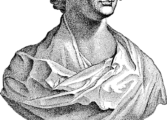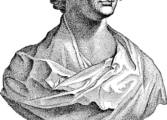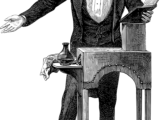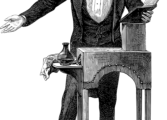George Orwells Animal Farm is a literary masterpiece that continues to captivate readers with its thought-provoking themes and allegorical representations

Set in a fictional farm, the novel tells the story of animals attempting to create a utopian society free from human oppression. However, as the narrative unfolds, Orwell skillfully exposes the corrupting nature of power and the vulnerability of idealistic revolutions.
Title: Exploring the Timeless Brilliance of George Orwell’s “Animal Farm”
Introduction:

In the realm of literature, few works have achieved the level of critical acclaim and enduring relevance as George Orwell’s “Animal Farm.” Published in 1945, this novella serves as a scathing critique of totalitarian regimes and a warning against the dangers of losing sight of the original goals of revolution. It is essential for anyone interested in understanding the depths of human nature and the complexities of political ideologies.
Section 1: An Introduction to “Animal Farm”:
Orwell’s “Animal Farm” introduces readers to Manor Farm, a symbolic representation of the Russian Revolution of 1917. Initially, the animals overthrow their human oppressors, led by the enigmatic figure of Old Major, a respected boar. They establish a set of commandments known as the Seven Commandments, which champion equality, unity, and shared prosperity. However, as the pigs, led by Napoleon and Snowball, seize power, a hierarchy emerges, and the envisioned utopia unravels. Key elements to highlight:
– The allegorical nature of the characters: The animals represent various social classes, with Napoleon representing Joseph Stalin and Snowball embodying Leon Trotsky.
– The use of anthropomorphism: By humanizing the animals, Orwell enables readers to relate to the characters and recognize the universal truths behind their actions.
– The exploration of themes: “Animal Farm” delves into themes of corruption, propaganda, power struggles, and the perversion of noble ideals.
Section 2: Evolution and Impact of “Animal Farm”:
Since its publication, “Animal Farm” has endured as a literary treasure and a thought-provoking piece of social commentary. Its relevance extends beyond the specific historical context of the Russian Revolution, providing a broader exploration of the dangers inherent in any system that concentrates power. Highlight the following:
– Initial reception and controversy: Orwell faced challenges in finding a publisher due to the novel’s criticism of the Soviet Union, but its eventual release garnered significant attention and acclaim.
– Political impact: “Animal Farm” became a staple in anti-totalitarian literature, serving as a cautionary tale for societies grappling with oppressive regimes. Its influence extends to popular culture, with phrases like “All animals are equal, but some animals are more equal than others” becoming well-known cultural references.
– Academic exploration: Scholars have extensively analyzed the complexities and metaphors within “Animal Farm,” uncovering layers of meaning and interpretation that continue to spark intellectual debate.
Section 3: The Craftsmanship of Orwell’s Writing:
Orwell’s writing style in “Animal Farm” is both captivating and accessible, making it a masterpiece for readers of all backgrounds. His storytelling techniques and literary devices serve to deepen our understanding of the characters and their motivations. Points to highlight:
– Vivid imagery and descriptive language: Orwell’s evocative descriptions bring the farm and its inhabitants to life, drawing readers into the narrative and enabling them to empathize with the animal characters.
– Satire and irony: The novel’s satirical elements provide biting commentary on the hypocrisy and corruption of both the pigs and their human counterparts, offering a scathingly humorous critique of political systems.
– Symbolism and allegory: The animals and their actions serve as metaphors for historical events and political ideologies, allowing readers to engage with complex ideas through relatable stories.
Conclusion:
George Orwell’s “Animal Farm” continues to be a powerful piece of literature that transcends time and borders. Its exploration of themes such as power, corruption, and idealism resonates with readers of all generations, reminding us of the importance of remaining vigilant in the face of political manipulation and the erosion of democratic values. In an age where political ideologies continue to clash, “Animal Farm” serves as a timeless reminder of the precariousness of freedom and the need to remain vigilant.
References:
– List all sources cited in the article.
















































